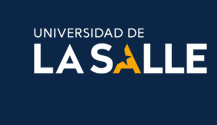Resumen
El artículo se centra en el panorama y diagnóstico que Frochaux hace en su texto L’Homme Seul, sobre la civilización y cultura como distanciamiento del hombre respecto a la naturaleza, resumido en su tesis “la historia es biología injerta en lo geográfico”; una de las varias consecuencias de ello está en que desde que dicho distanciamiento se consolidó, el arte se estancó, en la medida en que el progreso desacralizó la realidad, el misterio y lo sagrado desaparecieron. Desapareció el cánon. La realidad estaba dividida entre lo sagrado y lo profano, siendo éste lo conquistado por el hombre, y lo sagrado lo no conquistado por el hombre. Así, la historia puede verse como la lucha permanente entre lo sagrado y lo profano. El distanciamiento movido por el afán de desarrollo material de la sociedad, pero, ligado a ello, el progreso nos ha generado una cierta culpabilidad. Lo uno implica lo otro, cual fatalidad. El distanciarse del mundo animal, en el cual fue creado, es el precio que el hombre debió pagar para llegar a ser el hombre de hoy, erigido como centro de la creación; pero, ¿lo que ganó con ello es más valioso que lo perdió? Viendo el mundo actual, ¿valió la pena la ruptura y el distancia-miento con el mundo natural y animal en aras de la sociedad que tenemos hoy? Esta traición del hombre hacia la naturaleza y la animalidad le genera una culpa permanente, la cual no desaparece pese al progreso alcanzado; es la culpa original. Pretendiendo colocarse por encima del mundo natural y animal, el hombre se cree superior, pero, lo único que ha hecho es refinar la destreza animal y usarla para la destrucción misma de la naturaleza y del mundo animal. Todo lo animal se centuplica cuando se transforma en humano. El hombre es un poco todos los animales sintetizados en él. Ninguna especie animal hace la guerra al interior de ella misma como sí lo haceel hombre. Con estas tesis aborda la historia, la economía, el arte y nos deja una fuerte sensación de escepticismo.
Palabras clave
Naturaleza, distanciamiento, desarrollo, culpabilidad, fatalidad, arte, progreso
Abstract
This paper focuses in the panorama and diagnosis that Frochaux outlines in his text L’homme Seul about culture and civilization as distancing of man with respect to nature. Such idea is resumed in his theses “The history is biology engrafted on the geographical.” For the author one of the several consequences of this situation is that such distancing was consolidated and arts were stagnated, just as the progress made profane all the reality and all mystery and holiness vanished from it. The canon disappeared. Reality was divided between the sacred and the profane; profane was all that was conquered by man, sacred all unconquered by man. So history could be perceived as the permanent struggle between sacred and profane. The distancing is promoted by society’s eagerness for material development. Linked with it, progress has generated in us some guilt. Progress implies guilt, as a fatality. For man, distancing from the animal world where was created, is the price that should be paid for becoming the man of today, erected as the centre of all creation. But one could ask watching the ways of the current world: ¿Was not such that was lost more valuable that such that was won? ¿Was that rupture and distancing from the natural and animal world worthy of the society we now have? This betrayal of man to both nature and animals creates him a permanent guilt, guilt that do not disappears despite the progress achieved by him. This guilt is the original guilt. Seeking putting himself above the natural and animal world man believes he is superior. But man has only refined the animal skills and has used them for the destruction of nature and the animal world. All that is animal is extremely multiplied when transformed into human. Man is a synthesis of a little bit of all animals. But no animal species makes war among its own members as man do. Frochaux faces history, economics and arts with all these theses, leaving on us a strong feeling of scepticism.
Keywords
Nature, distancing, development, guiltiness, fatality, art, progress
Fecha de recepción
17 de marzo de 2006
Fecha de aceptación
18 de abril de 2006
Fecha de publicación
2006-05-01
Licencia Creative Commons

This work is licensed under a Creative Commons Attribution-Noncommercial-No Derivative Works 4.0 License.
Tipo de documento
Artículo de investigación
Editorial
Universidad de La Salle. Ediciones Unisalle
Citación recomendada
Téllez, Freddy
(2006)
"Diálogo con Claude Frochaux sobre L’homme seul,"
Logos:
No.
10
, Article 10.
Disponible en:


